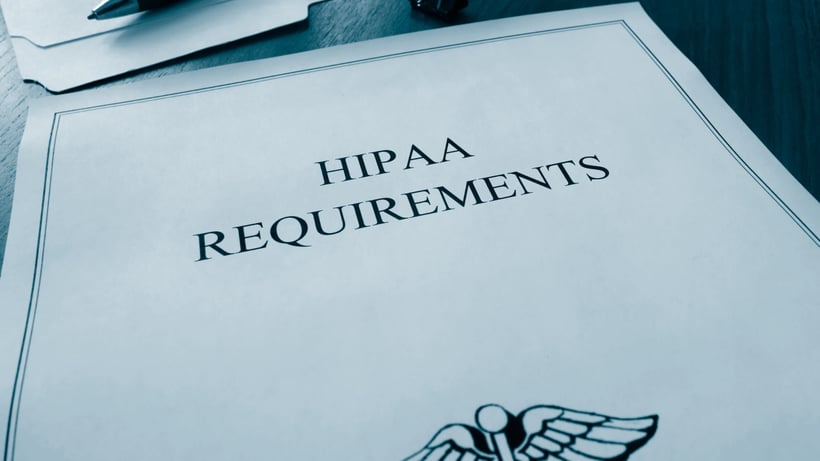Top 5 Holiday Cybersecurity Tips for Businesses
Are you preparing to deck the halls this season? Make sure your organization knows these essential...
By: Chris Schalleur on Sep 28, 2022 1:30:00 PM

The Health Insurance Portability and Accountability Act (HIPAA) and cybersecurity are essential in the healthcare sector, established to ensure that individuals' medical information and personal records are safe and protected from cybercrime.
The HIPAA provides a set of rules that every health worker must comply with during record keeping and ensure the patient's proper care. A downside, however, is that these rules can’t exclusively protect a patient's record from being compromised by external authorities. This makes cybersecurity very vital in the healthcare system.
From daily online interaction to larger-scale technologies like blockchain technology, it has proven to be the best medium for keeping data safe in information technology.
Reports have shown and proven from time to time that HIPAA compliance is inadequate when keeping patient data despite several audits, risk assessments, and how careful healthcare workers can be with electronic data.
To ensure a patient's privacy and forestall violations, HIPAA guidelines recommend adopting a comprehensive cybersecurity program to safeguard a patient's data in any state, ensure remote access security and protect medical devices and other wireless tools in the healthcare environment.
The HIPAA guidelines, which are categorized into four rules, are used correlatively with cybersecurity to maximize data protection and confidentiality through the following methods:
A firewall is a security mechanism that prevents an entity's information from unauthorized access. It filters incoming and outgoing information and stands as a limit between private and public networks.
Using a firewall is required in the healthcare system to improve its cybersecurity by providing additional layers of protection between the health sector and cyber threats. HIPAA compliance requires the firewall to be stored for at least one year for it to be a HIPAA complaint. The absence of a firewall makes healthcare data easily accessible, and it may be very difficult to identify how data breaches happened.
Limiting continuous access to a public network and the access of individuals to your data is an easy way to secure and maintain HIPAA compliance. Alternatively, providing an independent wireless and service network can help to protect sensitive information and client data from unauthorized employees and guests. Depending solely on just one access to health care information and networking makes it easier for electronic records to be vulnerable to cyberattacks.
Protecting a healthcare organization's sensitive data can be done ideally via a cloud backup system. This ensures that vital data are still available and accessible when needed by health experts, even after they may have been lost or stolen. It also ensures that most healthcare organization's data is safe from malware and crypto viruses. Backing up electronic data and personal records gives health organizations an edge at all times against cyber threats and provides a stellar reputation for the organization.
Developing a recovery or backup plan in case of a cyber attack strike. It is advisable to identify the pros and cons of a data-breach situation. This step helps the organization determine the best ways to handle or recover from such attacks.
Employees should be prepped and constantly aware of their respective responsibilities in the event of a cyber attack. They should also learn how to retrieve or save the organization's records in the event of cyber intrusion. The least expenditure likely to be used in recovery data solely depends on how adept the organization can be in securing and retrieving information.
Conclusively, the adverse effects of cyber attacks and data breaches can be disastrous to a healthcare organization. Hence, as cyber threats and cybersecurity constantly evolve, a healthcare system needs to ensure that its security measures are always up to date and that patients are provided with the best care and attention possible. This allows them to stay one step ahead of the medical sector and reduce data loss. It also paves the path and ensures more confidence and recognition among patients, healthcare personnel, and the public.
Are you preparing to deck the halls this season? Make sure your organization knows these essential...
As cybercriminals become increasingly sophisticated in their methods, it's crucial for individuals...
What happens if your organization falls prey to a cyber attack—is your firm protected from risk?...